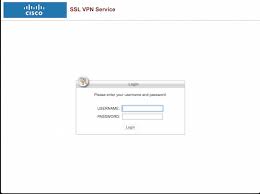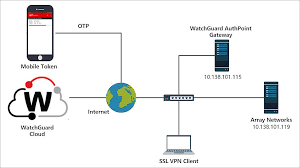The Power of Cisco SSL VPN
Cisco SSL VPN (Secure Sockets Layer Virtual Private Network) is a powerful technology that enables secure remote access to corporate networks. It provides a secure encrypted connection over the internet, allowing users to access resources and applications from anywhere, at any time.
One of the key advantages of Cisco SSL VPN is its ease of use. With a simple web browser, users can securely log in and access internal resources without the need for additional software installations. This makes it convenient for employees working remotely or on-the-go.
Security is paramount in today’s digital landscape, and Cisco SSL VPN offers robust encryption and authentication mechanisms to protect data in transit. By establishing a secure tunnel between the user’s device and the corporate network, sensitive information remains confidential and shielded from potential threats.
Furthermore, Cisco SSL VPN provides granular access control capabilities, allowing administrators to define policies based on user roles or device types. This ensures that only authorised users with the appropriate permissions can access specific resources, enhancing security posture and reducing the risk of data breaches.
Another benefit of Cisco SSL VPN is its scalability. Whether your organisation has a handful of remote users or a large distributed workforce, Cisco’s solution can accommodate varying needs and grow alongside your business requirements. This scalability ensures seamless connectivity for all users without compromising performance or security.
In conclusion, Cisco SSL VPN is a versatile and reliable solution for enabling secure remote access to corporate networks. With its user-friendly interface, robust security features, granular access controls, and scalability, it empowers organisations to embrace flexible work arrangements while maintaining a strong security posture.
Six Essential Tips for Securing Your Cisco SSL VPN: Configuration, Updates, and Best Practices
- Ensure your SSL VPN is properly configured with strong encryption protocols to enhance security.
- Regularly update your SSL VPN software to patch any vulnerabilities and ensure optimal performance.
- Implement multi-factor authentication for an added layer of security when accessing the VPN.
- Monitor and log SSL VPN activity to detect any suspicious behaviour or unauthorized access attempts.
- Provide thorough training for users on how to securely connect to the SSL VPN and handle sensitive data.
- Establish clear policies regarding acceptable use, data protection, and incident response for your SSL VPN.
Ensure your SSL VPN is properly configured with strong encryption protocols to enhance security.
To maximise security when utilising Cisco SSL VPN, it is crucial to ensure that your VPN is configured correctly with robust encryption protocols. By implementing strong encryption standards, such as AES (Advanced Encryption Standard), you can significantly enhance the protection of data transmitted between remote users and the corporate network. This proactive measure not only safeguards sensitive information from potential threats but also reinforces the overall security posture of your organisation’s remote access infrastructure.
Regularly update your SSL VPN software to patch any vulnerabilities and ensure optimal performance.
It is crucial to regularly update your Cisco SSL VPN software to address any potential vulnerabilities and maintain optimal performance. By applying software patches and updates promptly, you can enhance the security of your VPN connection and protect against emerging threats. Additionally, keeping your SSL VPN software up to date ensures that you benefit from the latest features, improvements, and bug fixes provided by Cisco, helping to streamline operations and maintain a reliable remote access solution for your organisation.
Implement multi-factor authentication for an added layer of security when accessing the VPN.
Implementing multi-factor authentication (MFA) is a highly recommended tip for enhancing security when utilising Cisco SSL VPN. By requiring users to provide multiple forms of verification, such as a password and a unique code sent to their mobile device, MFA adds an extra layer of protection against unauthorised access. This additional security measure significantly reduces the risk of cyber threats and ensures that only authenticated users with the correct credentials can access the VPN, thereby safeguarding sensitive data and bolstering overall network security.
Monitor and log SSL VPN activity to detect any suspicious behaviour or unauthorized access attempts.
Monitoring and logging SSL VPN activity is a crucial tip in maintaining the security of a Cisco SSL VPN implementation. By actively tracking and recording user interactions, administrators can swiftly detect any anomalous behaviour or unauthorised access attempts within the network. This proactive approach allows for timely intervention and mitigation of potential security threats, ensuring the integrity and confidentiality of sensitive data transmitted through the VPN connection. Regularly reviewing these logs can provide valuable insights into network activity, enabling organisations to stay vigilant and respond effectively to any suspicious incidents that may compromise the security of their infrastructure.
Provide thorough training for users on how to securely connect to the SSL VPN and handle sensitive data.
It is crucial to provide comprehensive training for users on securely connecting to the Cisco SSL VPN and handling sensitive data. By educating users on best practices, such as creating strong passwords, recognising phishing attempts, and safeguarding confidential information, organisations can enhance security awareness and mitigate potential risks. Training sessions should cover topics like secure login procedures, data encryption protocols, and the importance of adhering to company policies when accessing resources via the SSL VPN. Empowering users with the knowledge and skills to navigate the VPN securely not only protects sensitive data but also strengthens the overall cybersecurity posture of the organisation.
Establish clear policies regarding acceptable use, data protection, and incident response for your SSL VPN.
To maximise the effectiveness of your Cisco SSL VPN deployment, it is crucial to establish clear policies regarding acceptable use, data protection, and incident response. By defining guidelines on how employees should utilise the SSL VPN, outlining measures to safeguard sensitive data during remote access, and detailing procedures for responding to security incidents, organisations can ensure a secure and compliant remote access environment. These policies not only help mitigate risks but also promote a culture of security awareness among users, reinforcing the overall integrity of the network infrastructure.


